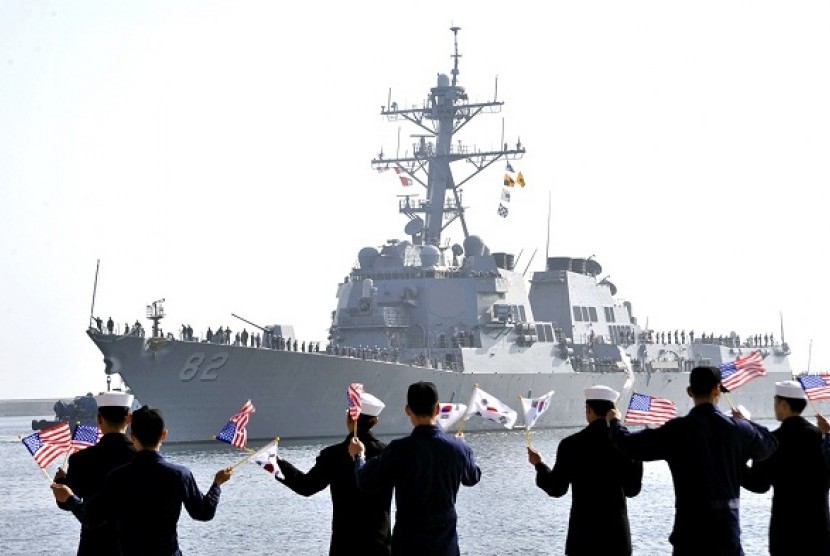REPUBLIKA.CO.ID, SEOUL -- South Korea decided Tuesday to build three more Aegis destroyers to complement the three it already has to bolster defense against North Korea and its Asian neighbors, the Joint Chiefs of Staff (JCS) said.
JCS Chairman Choi Yun-hee endorsed the plan in a meeting to build three 7,600-ton Aegis destroyers between 2023 and 2027 with an estimated budget of 4 trillion won (US$3.8 billion).
South Korea already operates three Aegis-equipped guided missile destroyers, which were jointly produced by South Korea's Hyundai Heavy Industries Co. and Lockheed Martin of the U.S.
"The plan is aimed at enhancing the South Korean military's capability against rising threat posed by North Korea's nuclear and missile weapons as well as submarines," JCS spokesman Col. Eom Hyo-sik said in a briefing. "The ships will also bolster capabilities against potential threat around the Korean Peninsula."
The latest decision comes shortly after Seoul on Sunday announced its new air defense identification zone that will cover a reef and other islands off the southern coast of the Korean Peninsula. The move is meant to counter China's unilateral decision on Nov. 23 to expand its own zone.
The Navy made the request to have three more Aegis ships a year ago to better deter nuclear-armed North Korea, but it has taken on new urgency in recent months as tensions have simmered in Northeast Asia over territorial and historical disputes between Asian nations.
The JCS had planned to approve the plan later this month, but it moved up the schedule as Seoul is preparing to step up patrols in the newly declared zone, including the submerged reef of Ieodo, which is controlled by South Korea.
Once the ships are in service, South Korea will be able to create three mobile squadrons to better defend its territories, such as the Dokdo Islets in the East Sea and the Ieodo Ocean Research Station, according to military officials.
A mobile squadron can be made up of two Aegis ships, 4,200-ton destroyers, two 3,000-ton submarines, one transport ship, two 3,000-ton submarines -- which can be supplemented by maritime reconnaissance planes -- and one replenishment ship, according to a study commissioned by the state-run Defense Acquisition Program Administration last year.


